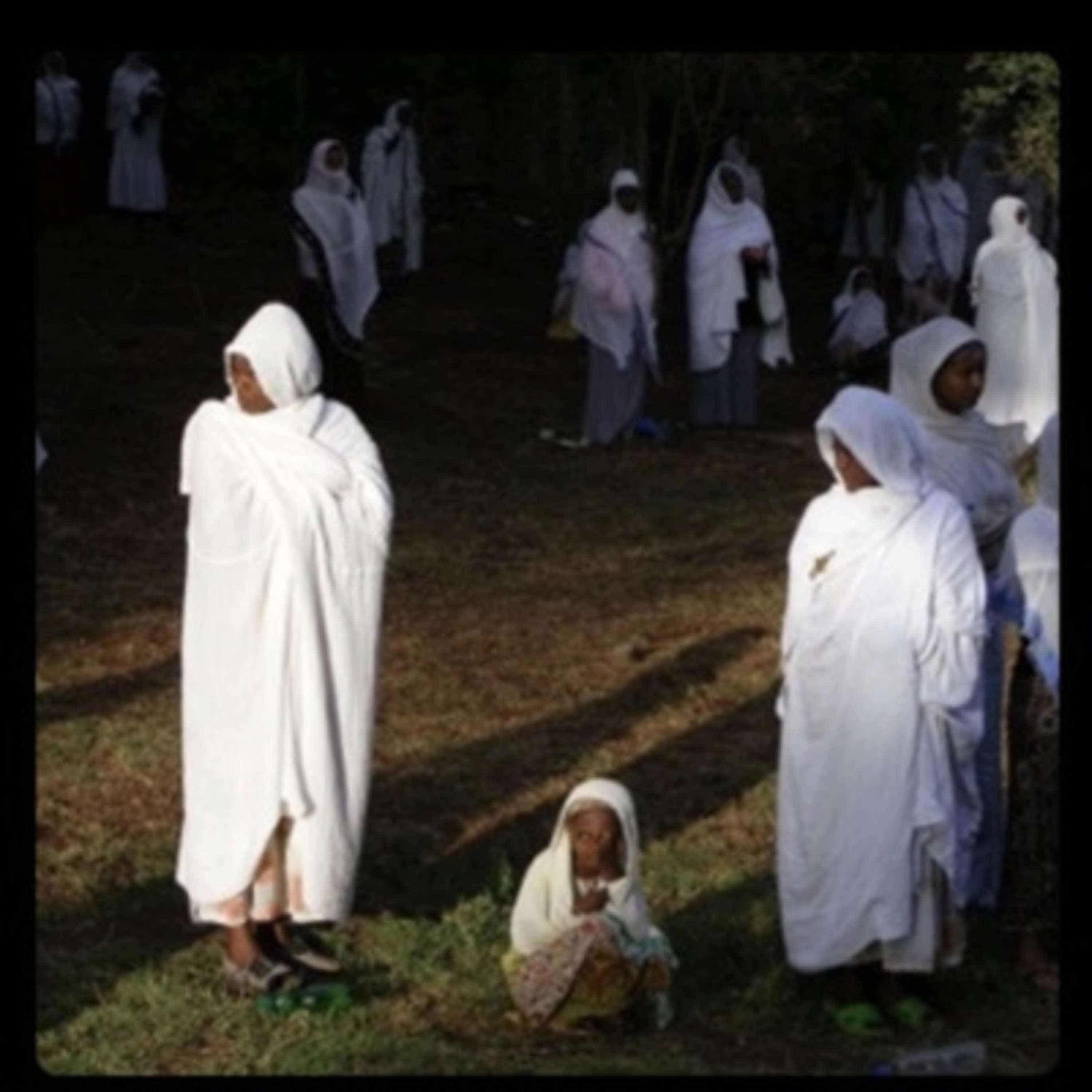Guest Spot
Description
Editorial Note:
English Teaching roughly 15:00-45:00. Preceded by Amharic prayer and Amharic spiritual singing, and an English poem.
This is a guest spot from this time during the Great Fast seven years ago, in collaboration with United Orthodox Tewahdo Youth. They were an idealistic bunch of young people, whom from everything I can tell, were an offshoot of mahibere qidusan in the English language. I have now seen several official gibee gubaé (premises conferences) popping up on college campuses across the U.S. as they did for the first time decades ago in Ethiopia.
I have mixed feelings. On the one hand they are almost all highly educated (in the secular sense) and excellent in their chosen professions, and give generously to projects in the name of God (Psalm 69:9; John 2:17). Training varies wildly member-to-member, but they sponsor many church scholars. They raise money for up-keeping of monasteries. And they reach across sundry verbal and nonverbal language barriers.
What is the end goal? And what is the structure? The message I have found to be one of neotraditionalism or neoconservatism (not the foreign policy position). There is a beauty in bringing about modest church attire homogeneity, but this should always be matched by internal struggle against sin. The milieu of these organizations is both the nascent autocephaly granted us gradually in 1929, 1950, and 1959, and the political chaos ushered in by the Marxist-Leninst derg regime followed by the TPLF regime which substituted class communism for race communism, and just when we thought we had respite with the reunification of the holy synod in 2018, the oromuma regime began doing more of the same.
Attempts to shake Egyptian Coptic control were made from time to time, but it was not until 1929 that a compromise was effected: an Egyptian monk was again appointed abuna, but four Ethiopian bishops were also consecrated as his auxiliaries. A native Ethiopian abuna, Basil, was finally appointed in 1950, and in 1959 an autonomous Ethiopian patriarchate was established
In this context, the most Orthodox behavior of obedience to a bishop was forgotten or intentionally neglected. These organizations pop up here and there with different names, and rarely are connected with a bishop. What does scripture say?
“So Samuel said: Has the Lord as great delight in burnt offerings and sacrifices, As in obeying the voice of the Lord? Behold, to obey is better than sacrifice, And to heed than the fat of rams” (1 Samuel 15:22).
And the early church fathers?
See that you all follow the bishop, even as Jesus Christ does the Father, and the presbytery as you would the apostles; and reverence the deacons, as being the institution of God. Let no man do anything connected with the Church without the bishop. Let that be deemed a proper Eucharist, which is administered either by the bishop, or by one to whom he has entrusted it. Wherever the bishop shall appear, there let the multitude also be; even as, wherever Jesus Christ is, there is the Universal Church. It is not lawful without the bishop either to baptize or to celebrate a love-feast; but whatsoever he shall approve of, that is also pleasing to God, so that everything that is done may be secure and valid.
The Epistle of St. Ignatius of Antioch to the Smyrnaeans
As soon as his beatitude Archbishop Theophilus of Northern CA, Nevada, Arizona, and New Mexico seized this organization, under the auspices of the holy synod of the EOTC, inexplicably, they withered away. A few name changes and similar organizations have arisen since, and I hope they are aligned with their respective archbishops and archdioceses.
As for the archdiocese of Southern CA, we are highly organized, and in direct submission and obedience to his beatitude Archbishop Barnabas; who learned under the same teacher whom mahibere qidusan acknowledges as their spiritual founder, Archbishop Gregory, of blessed memory, of Lake ziway monastery. In his book sima tewahdo (tew
More Episodes
Raymond Silverman, Professor Emeritus of History of Art, Afroamerican, and African Studies at University of Michigan, joins me on the latest Philosophy of Art and Science to discuss the Afroasiatic art of Aksum.
Aksum Review of Books is a reader-supported publication. Free subscribers help...
Published 11/10/24
This is an audio recording of my homily from the throne of the Ethiopian Orthodox Tewahdo Church’s bishop of Washington, Oregon, and Idaho. I delivered this homily during communion, and the cameraman rightly took the camera away from the mystery of qwrban (qurban; sacrifice; communion), whilst...
Published 10/31/24
Published 10/31/24


